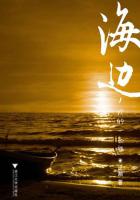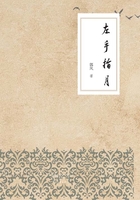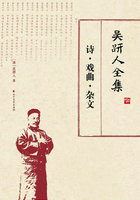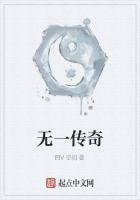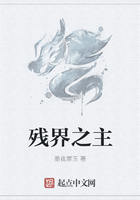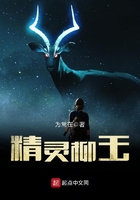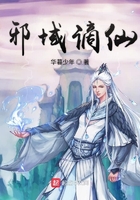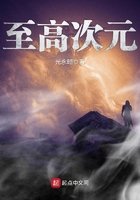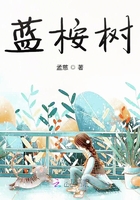German poet and philosopher, in his later years defines the final destination of human beings as “home return”. He thinks the best home is one’s native land, namely, the place where we were born. The final convert of human beings is “home return”. While forefeeling people’s inescapable homeless state, Holderlin also forefeels that human beings will return to their home, to their virginhood. Home return is to return to the place where people live poetically, to the neighborhood with deity, so as to enjoy the boundless joy out of company with deity. This is a life of poetry, poetry of life (this is also Liu Xiaofeng’s interpretation of Holderlin’s “home return”). Yiren also says in his long poem: “my answer is harmony man and nature.” Though not quite clear, we can dimly feel the return to the original state, to embrace nature, and he deems it the place with the most poetry.
[Love]
Love is the orientation of the long poem, as well as the prescription made by Yiren to save the sinking ship. Either individual life or a nation, they shall own and stick to such a character. Love is the driving force, and the harmonizer between people, between nations, and between human beings and the world. Love can stop a war, can get rid of hate, and can save the sinking ship. “In the past years / we are as close as brothers”, “Oh cheer my subjects / It is you who have saved the fairy of another nation / Seeing the reality before the eyes hustling and bustling / Is being transformed into the pretty sun of double day / My heart has enjoyed momentary peace”. This is the force of love. When modern people feel puzzled and perplexed, when they have no thinking no thought no belief and no direction, love is their religion and myth. It is love that gives them courage and warmth; it is love that renews themselves; it is love that lets them find themselves and find their own souls. But only love is insufficient. Because love is the basis, is the basic element for people to be human beings — people are in a defensive position, when they are at the stage of feeding and clothing themselves. But in order for people to gain further development, they need bigger meaning and idea to support themselves, to reveal the secret of human life, to offer more value to the world. This is none other than ideal or belief, which is called deity in poetry. People need a deity which is bigger than themselves, which they adore and are willing to dedicate themselves to it, and which is beneficial to other people and the world.
[Deity]
In this long poem, deity is also called the dream or ideal. It is the motive and driving force for Yiren to compose this poem. Whether for Yiren or for the world, deity is a kind of redemption: to redeem one’s own soul, to save the world under crisis. People shall not live a life which is mediocre, selfish, indulgent; people shall design some meaning for their life, which is the center and basis for people to live on, and this is deity in people’s mind. For Yiren, this deity is also poetry, because poetry is above our life, just like the deity to which we look up. With poetry writing, he pushes the old and rusty ship; with poetry writing, he illumines the hearts which are still obscured, dark, and cold. He sharpens his senses with poetry; his sensibility becomes more sensitive; people’s mind becomes greater; and people’s bosoms become larger and warmer. The deity, sometimes overlooks at you from above, sometimes is warm-hearted like Mother, and sometimes tender-hearted like a lover. While warming himself up, the poet uses it to warm up the heart of more people. As Schlegel says, “the task of poetry is not to maintain the eternal right of freedom, not to oppose external tyranny, but to make human life into poetry, to oppose prose of life (this refers to mediocrity and vulgarity). To pursue poetry is to pursue freedom; the kingdom of poetry itself is the kingdom of freedom.” This is the rays of light of deity and necessity, and it is also the aim for Yiren to write this poem.
[Yiren]
Yiren is a man of Qinghai Plateau, as well as a Salar poet who names his nationality with poetry. Owing to his boundless vision and large heart, he is at ease in tackling such an important and heavy subject matter, which tends to be made into pompous, empty, or puzzling poems. But the unique quality in Yiren empowers him to sing well the big song: low, deep, and virile, even a bit sentimentally hoarse. The former part is like the river water out of suona horn, which rills or rushes in vales and mountains; the latter part is like sailing on a vast plain or a great river, quick and high-spirited, between which there are occasional stoppage or patching and mending. It is gratifying to see that Yiren can use small details to express majestic themes, which draws poetry close to us, and within our understanding. At the same time, it endows poetry with a cordial feeling to express deity and sacredness by utilizing familiar images around us; what is more gratifying is to find his expression and lyricism soft, warm, even affectionate, sometimes sparkling with tears — in such a way to express something solemn and stirring, which is flavored with a touch of warmth and worldliness.
About the Author:
Li Li, a famous poet and critic in contemporary China. His original name was Li Yusheng, ancestral place in Liaoning Province, and he now lives Beijing. He is director of the Film & Video Department of Chinese Poetry Association. He get his master’s degree in aesthetics of literature and art from Beijing Normal University, and he began his writing of poems and criticism since the 80s of the last century. His major works include: two poetry collections entitled Black Poppies and Twenty-four Songs of a Village, a collection of literary criticism entitled Refusal of Eternity, and a research collection entitled Doorless Paradise — Psychological Analysis of World Poets Who Commit Suicide,etc.

